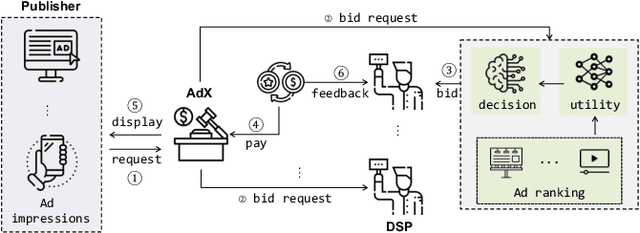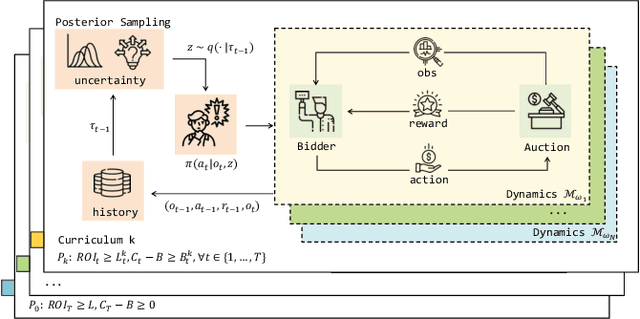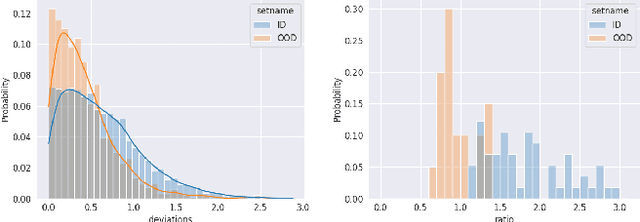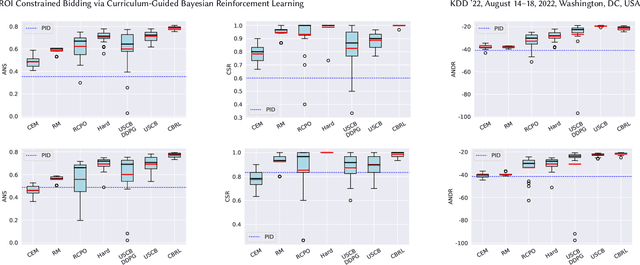Panyan Fang
Adversarial Constrained Bidding via Minimax Regret Optimization with Causality-Aware Reinforcement Learning
Jun 12, 2023Abstract:The proliferation of the Internet has led to the emergence of online advertising, driven by the mechanics of online auctions. In these repeated auctions, software agents participate on behalf of aggregated advertisers to optimize for their long-term utility. To fulfill the diverse demands, bidding strategies are employed to optimize advertising objectives subject to different spending constraints. Existing approaches on constrained bidding typically rely on i.i.d. train and test conditions, which contradicts the adversarial nature of online ad markets where different parties possess potentially conflicting objectives. In this regard, we explore the problem of constrained bidding in adversarial bidding environments, which assumes no knowledge about the adversarial factors. Instead of relying on the i.i.d. assumption, our insight is to align the train distribution of environments with the potential test distribution meanwhile minimizing policy regret. Based on this insight, we propose a practical Minimax Regret Optimization (MiRO) approach that interleaves between a teacher finding adversarial environments for tutoring and a learner meta-learning its policy over the given distribution of environments. In addition, we pioneer to incorporate expert demonstrations for learning bidding strategies. Through a causality-aware policy design, we improve upon MiRO by distilling knowledge from the experts. Extensive experiments on both industrial data and synthetic data show that our method, MiRO with Causality-aware reinforcement Learning (MiROCL), outperforms prior methods by over 30%.
ROI-Constrained Bidding via Curriculum-Guided Bayesian Reinforcement Learning
Jun 23, 2022



Abstract:Real-Time Bidding (RTB) is an important mechanism in modern online advertising systems. Advertisers employ bidding strategies in RTB to optimize their advertising effects subject to various financial requirements, especially the return-on-investment (ROI) constraint. ROIs change non-monotonically during the sequential bidding process, and often induce a see-saw effect between constraint satisfaction and objective optimization. While some existing approaches show promising results in static or mildly changing ad markets, they fail to generalize to highly dynamic ad markets with ROI constraints, due to their inability to adaptively balance constraints and objectives amidst non-stationarity and partial observability. In this work, we specialize in ROI-Constrained Bidding in non-stationary markets. Based on a Partially Observable Constrained Markov Decision Process, our method exploits an indicator-augmented reward function free of extra trade-off parameters and develops a Curriculum-Guided Bayesian Reinforcement Learning (CBRL) framework to adaptively control the constraint-objective trade-off in non-stationary ad markets. Extensive experiments on a large-scale industrial dataset with two problem settings reveal that CBRL generalizes well in both in-distribution and out-of-distribution data regimes, and enjoys superior learning efficiency and stability.
 Add to Chrome
Add to Chrome Add to Firefox
Add to Firefox Add to Edge
Add to Edge